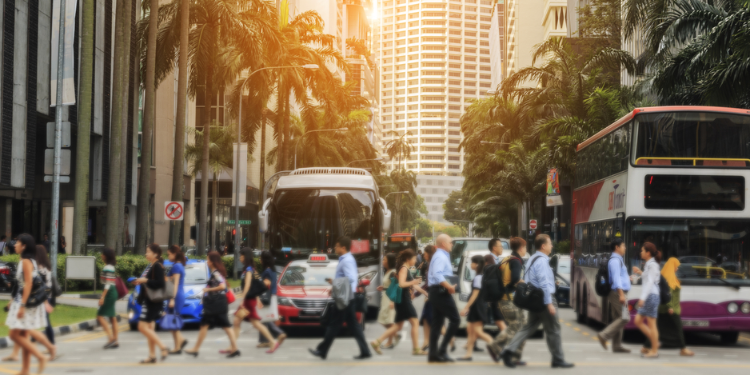
It could become much harder for expatriates to find a job in the Singapore services sector. It was announced on the Tuesday 19th of February during the annual budget speech session in Parliament: by 2021, the percentage of foreign workers making up a company’s workforce will need to be reduced from 40% to 35% in the services sector, the sector which employs the most expatriates. This has been announced in a attempt to promote training of the Singaporean workforce to suit the demands of the industry and upgrading of positions available on the market. But what does it mean for expatriates living in Singapore today? And for individuals seeking to move to Singapore?
The Dependency Ratio Ceiling (DRC), that is the ratio of foreign workers to the total workforce of a company will need to be reduced to 38% by the first of January 2020 and to 35% by January 2121. What this means for expatriates who are already in Singapore will depend on what approach different companies adopt but this will definitely make it more difficult for individuals wanting to move to Singapore to find a job.
How will expats working in Singapore be affected by this?
For companies where foreign workers already make up 40% of their employees, it is only upon renewing their permits next that they will be asked to fulfill the new requirements. They can also, depending on their needs, apply for more flexibility. Furthermore, grants will also be offered to companies to cater for adjustments. This would mean that expatriates working in the services sector in Singapore do not have, right now, reason to worry.
How will professionals wanting to work in Singapore affected by this?
Professionals working in the services sector and seeking to find work in Singapore, however, will find it a lot harder to be hired. In addition to this the reduction in the DRC, the S pass (Sub-DRC) for the services sector will also be reduced to 10% by January 2012. This means that, within a company, there can only be 10% of S-Pass holders. S-passes are work permits for mid-skilled professionals.
In 2017, the population of expatriates in Singapore was 1.5 million, according to a report by the Department of Statistics Singapore. A majority of these expatriates work in the IT and the financial sector.



















